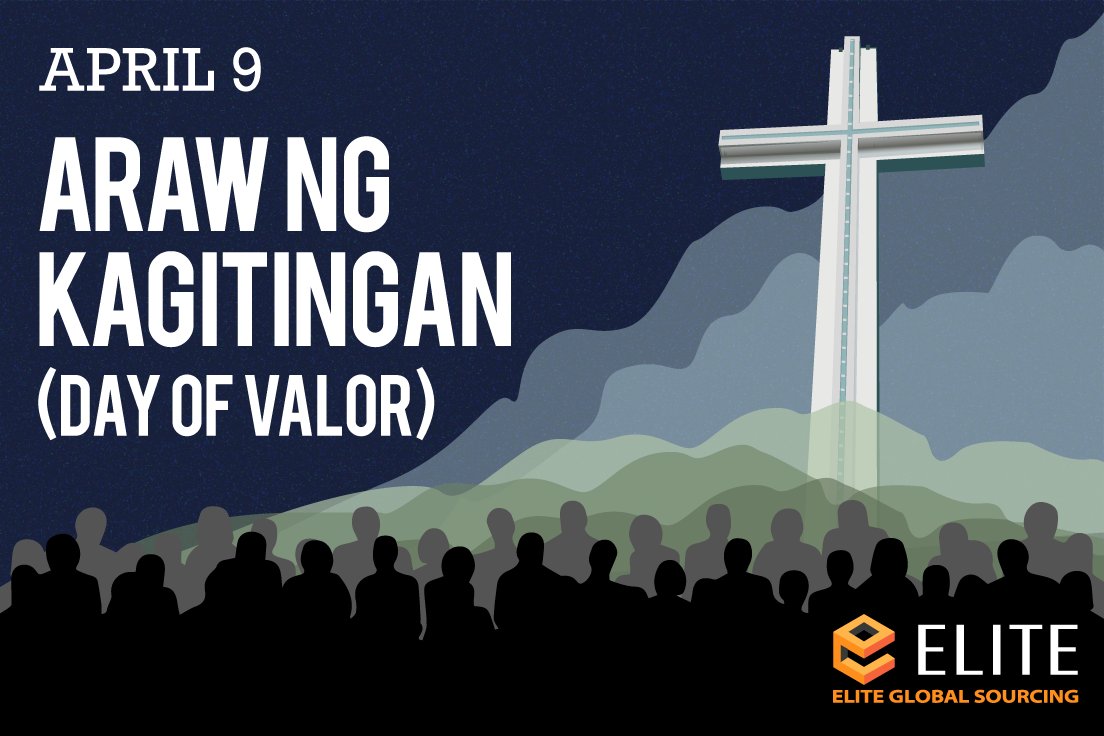Araw ng Kagitingan: Unpacking the Day of Valor
What does it mean to stand defiant in the face of overwhelming odds? To embody courage and resilience when all seems lost? This is the essence of Araw ng Kagitingan, a day etched in the heart of Philippine history. Translated as "Day of Valor," it commemorates the unwavering bravery displayed by Filipino and American soldiers during World War II, specifically the fall of Bataan on April 9, 1942.
Araw ng Kagitingan is not simply a date on a calendar; it's a powerful symbol of the Filipino spirit. It serves as a potent reminder of the sacrifices made to defend freedom and sovereignty. This day transcends the historical narrative; it’s a living testament to the values of resilience, unity, and unwavering patriotism.
The events leading up to Araw ng Kagitingan were brutal and harrowing. The combined Filipino and American forces, vastly outnumbered and outgunned by the invading Japanese Imperial Army, fought a desperate, protracted battle on the Bataan Peninsula. Despite facing starvation, disease, and relentless attacks, they held their ground for months, delaying the Japanese advance and inspiring hope in the face of adversity. Their courageous stand epitomized the very meaning of "kagitingan" – valor.
The fall of Bataan, though a devastating defeat, became a rallying cry. The bravery demonstrated during this arduous campaign ignited a fire of resistance within the Filipino people. The spirit of Araw ng Kagitingan became deeply intertwined with the fight for liberation, ultimately fueling the nation's enduring pursuit of freedom and self-determination.
Understanding the true meaning of Araw ng Kagitingan requires more than just knowing the historical facts. It demands a deeper appreciation for the human cost of war and the indomitable will of those who fought for a brighter future. This commemoration serves as a bridge connecting the past with the present, reminding us of the enduring importance of courage, sacrifice, and national unity.
The Day of Valor is more than a memorial to a specific battle; it is a celebration of the human spirit’s capacity for extraordinary courage in the face of seemingly insurmountable odds. The legacy of the Bataan defenders continues to inspire generations of Filipinos to stand up for what is right and to defend their freedom against any threat.
Observing Araw ng Kagitingan typically involves memorial services, parades, and educational programs. These activities serve to honor the fallen heroes and to educate the public, particularly the younger generation, about the significance of this historical event. The message conveyed is clear: never forget the sacrifices of those who came before, and strive to embody the same values of courage, resilience, and love of country.
One of the key benefits of commemorating Araw ng Kagitingan is the fostering of national unity. It serves as a powerful reminder that Filipinos, regardless of background or belief, are bound together by a shared history and a common purpose. This shared experience of struggle and resilience strengthens the bonds of nationhood and promotes a sense of collective identity.
Araw ng Kagitingan also reinforces the values of patriotism and civic duty. By remembering the sacrifices made by past generations, Filipinos are encouraged to become active and responsible citizens, contributing to the betterment of their communities and their nation. The day serves as a call to action, inspiring individuals to uphold the ideals of democracy and freedom.
Finally, Araw ng Kagitingan promotes peace and international understanding. By reflecting on the devastating consequences of war, it underscores the importance of peaceful conflict resolution and international cooperation. The day serves as a reminder that true valor lies not only in fighting for one's country but also in working towards a future free from conflict and violence.
Advantages and Disadvantages of Commemorations
| Advantages | Disadvantages |
|---|---|
| Strengthens National Identity | Can be politicized |
| Promotes Patriotism | May focus too much on the past |
Frequently Asked Questions:
1. What is Araw ng Kagitingan? - Araw ng Kagitingan is a Filipino national holiday commemorating the fall of Bataan during World War II.
2. When is Araw ng Kagitingan celebrated? - It is celebrated every April 9th.
3. What is the meaning of "kagitingan"? - Kagitingan means "valor" or "heroism" in Tagalog.
4. Why is Araw ng Kagitingan important? - It honors the bravery and sacrifice of Filipino and American soldiers during WWII.
5. What events usually take place during Araw ng Kagitingan? - Memorial services, parades, and educational programs are common.
6. How can I participate in Araw ng Kagitingan? - Attend local commemorations, learn more about the history, and share the story with others.
7. What is the significance of Bataan in Araw ng Kagitingan? - The fall of Bataan is the central event commemorated on this day.
8. What can we learn from Araw ng Kagitingan? - We can learn the importance of courage, resilience, unity, and the pursuit of peace.
In conclusion, Araw ng Kagitingan, the Day of Valor, is more than a historical marker; it is a vibrant thread woven into the fabric of Filipino identity. It's a testament to the unwavering spirit of those who fought valiantly against overwhelming odds, embodying the true meaning of "kagitingan" – valor. This day calls upon us to remember their sacrifice, to honor their legacy, and to strive for a future built on the foundations of courage, unity, and peace. By reflecting on the lessons of Araw ng Kagitingan, we are reminded of the enduring importance of standing up for what is right, defending our freedoms, and working towards a world free from conflict and oppression. Let us carry forward the torch of valor, ensuring that the sacrifices of the past continue to inspire generations to come.
The anticipation builds sweet home season 2 hindi
Unlocking your car title navigating the nj mvc release of title process
Decoding your dream kitchen a deep dive into the kitchen cabinet measurement chart














